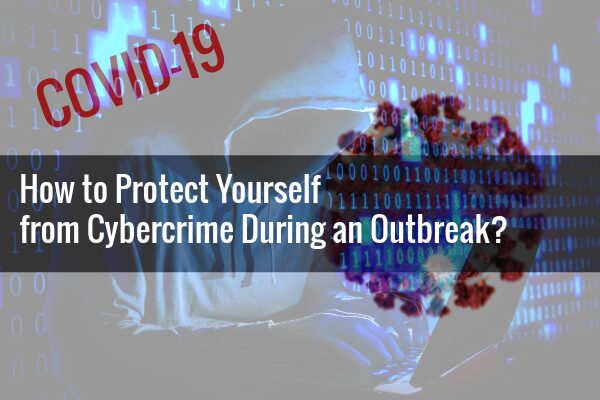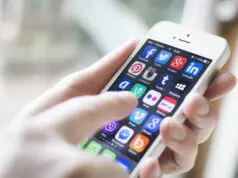
In the last few months, almost everyone is affected by the coronavirus outbreak. Unfortunately, it has left a dark effect on the cyber world as well.
Due to the contagious viral outbreak, everyone has to maintain social distancing. So, wherever possible, people are staying at home and working from the internet.
As a result, network access broadened. It has opened opportunities for many cyber-related crimes. The situation is challenging, cybersecurity.
One major problem with the situation is that everyone is scared of the viral outbreak. The cybercriminals at play know exactly how to use this to their advantage.
This is not a time to live in fear, but a time to stand up strong and think reasonably. We are going to give you some tips to protect yourself from attacks on the internet.
How cybercriminal is exploiting coronavirus?
Right now, the fear of coronavirus is everywhere. The National Cyber Security Center found out criminals are using it to fool people on the internet.
They trap people with malware attacks and carry out online scams. The director of the NCSC said that;
Cybercriminals are opportunists, and right now the coronavirus is a threat. The outbreak strike fear in people’s hearts.
These cyber attackers are using this fear to access your information from the internet.
Basically, they are designing their attack related to coronavirus, so that in fear, you end up doing something they want. For example, it is certain you will want to know more about the virus.
So, they may share a link in social media as a trap. Once you click it, you will probably be taken into an unwanted site. There could be fake advice to fight the virus on the internet.
Apart from that, you may also receive emails in which they will give you false information.
Let us look at how cybercrime has increased after the coronavirus outbreak. The cybersecurity firm checkpoint has released 4000 new domains in January 2025.
All of them are related to coronavirus. Even though these sites are registered sites, 3 percent of these sites are malicious sites, and 5 percent are doubtful.
Cybercrimes related to COVID 19
Unfortunately, these cybercriminals are already setting traps to scam people. Some activities they did include the following;
They are trying to influence you is by sending fake emails from the World Health Organization WHO. It is their way to steal sensitive information from you.
Emails often contain malicious links and attachments. Once you click it, your information is stolen by them. They also ask for personal information that they can use for cybercrime.
There are even fake Center of disease control CDC websites online. Upon visiting these websites, you will be asked for Bitcoin donations online. They will say the donation for the coronavirus vaccine.
Fake emails are sent to people in the UK, which contain malicious links. Along with that, the advice and directions suggested by the emails are faulty.
Most of the cyber attacks include taking money or stealing information from the internet.
Phishing emails
Whenever you get an email from a well-reputed company, you have to be careful. Cybercriminals spend a lot of time designing each email they send.
So, unless you are an expert from the company, you cannot notice the difference between them. Usually, this email will give you a harmful link or ask you personal information for their fraudulent activity.
Ransomware infections
These are links that are found on social media, email, or a website. If you click on this link, a virus will be released on your computer. Some data will be lost, and to recover the data you will need to pay a ransom fee.
Goods sale online
Cybercriminals advertise goods like masks, medicine, or vaccine that can help you fight COVID-19. These are fake and you should not buy from them.
How to recognize and protect yourself from cybercrime?
The company must communicate properly with remote workers. Make sure they are well aware of what to do on the internet. Good firewall protection is necessary for online work. Here are some steps you can take to protect your data;
Spotting Phishing email
In simple words, phishing emails are duplicates of the real company emails. So, identifying them is really tough.
Check the writing format and spelling thoroughly. Phishing emails usually have spelling errors or format mistakes, that is how you can catch them spot on.
Identifying a malware link
Keep in mind they are looking for your personal information or your money. Any malicious link that asks for money is suspicious.
Detecting fake products
Fake products make bold claims about their effectiveness. Whenever you see an advertisement and think that it is too good to be true, it is a red flag.
Don’t buy these products, it will do nothing but harm.
Best Advice during the coronavirus outbreak
One of the best ways to protect yourself from these scams is to second guess everything. We are facing a pandemic at the moment, things are as bad as it is.
The last thing we need is these people stealing our money using our weaknesses. When you are asked to buy a product, gather enough information to find out it is genuine.
Protecting remote workers from cybercrime
At first, you have to consider the complete picture. Social distancing is very important to stop the spread of the virus.
There is no telling for how long this will continue. So, rather than stop the company, it is best to switch to remote working wherever possible.
Take the following measures to protect your workers from cybercrime;
- Increase awareness about cybercrime among your workers
- Share cybercrime training material in between them. You can also hold webinars online.
- Keep your devices protected with antivirus software
The coronavirus is spreading across the globe rapidly. Many companies and businesses are harmed financially due to this outbreak.
Since they are suffering from damage, it is natural that they will forget about cybersecurity. But the truth is, this is exactly what cybercriminals want, that you let your guard down.
You have to keep in mind, this is a pandemic and everyone is suffering. The last thing you want is a criminal taking what is left in your bank account.
So, let us keep ourselves calm and fight with the virus and the cybercrime will cool heads rather than losing it all.
Stay Safe! 🙂













